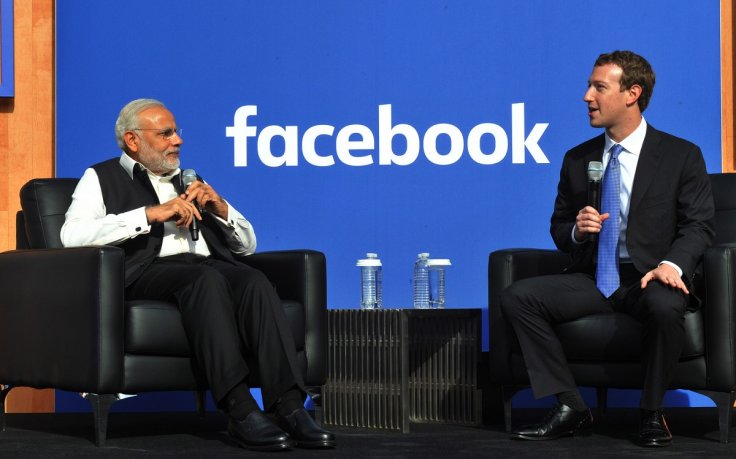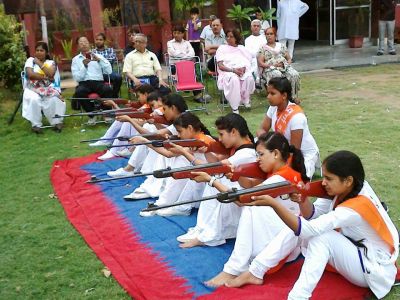In recent years, Facebook has faced backlash for silencing conservative voices on its platform. In response, CEO Mark Zuckerberg has cited reasons including hate speech that violates the social media giant's policy. However, the company's policy seems to change depending on the country it is in. A report claimed that even though Facebook determined a Hindu religious extremist group in India should be banned from its platform, it did not, fearing the safety of its staff and potential damage to its business prospects in the country.
Known as Bajrang Dal, the Hindu religious group is often known to be violent. In June 2020, the group installed a Hindu idol inside a Church, claiming that the Protestant church was being built on a site where once a temple existed. Some 20 members of the group allegedly beat the pastor. Bajrang Dal claimed responsibility in a video on Facebook that attracted over 600,000 views. Recently, the group has also threatened Hindus attending churches on Christmas. Previously, the group has also assaulted Muslims and has spread pro-Hindu hate speech.

According to Facebook's policies, the platform doesn't give space to militarized social movements and dangerous organizations. Hence, Bajrang Dal should have been banned from the platform. As per Wall Street Journal, Facebook's safety team also concluded that Bajrang Dal supported violence against minorities and should likely be designated as a "dangerous organization" but many pages related to the groups still exist.
Fear of Retaliation
However, Facebook intentionally ignored its own policies as it feared for staff's safety in India, according to the report by the Wall Street Journal. Facebook's security team feared that if the company cracked down on the groups, the company's employees might be attacked by the group. Apart from that, any action could also upset the ruling Bharatiya Janata Party (BJP), another Hindu nationalist organization with a history of inciting violence against religious minorities, especially Muslims.
According to the WSJ report, an employee of Facebook determined that a ban on the group should not occur due to "complexities" and political affiliation. Facebook's spokesperson Andy Stone, although denied the report saying, "We ban individuals or entities after following a careful, rigorous, and multi-disciplinary process. We enforce our Dangerous Organizations and Individuals policy globally without regard to political position or party affiliation."
Stone added that the security team's warning about a ban on Bajrang Dal and potential backlashes against its employees and business interest in India were "subjects for discussion as part of the standard process." But he refused to say anything on the matter of designating Bajrang Dal as a "dangerous group".
Designated Militant Organization
Bajrang Dal is the youth wing of Vishva Hindu Parishad (VHP), a pro-Hindu organization that seeks to protect Hindus and their religious sentiments. However, what seemed to be a peaceful organization that was established in 1964 came to prominence for its involvement in the Ayodhya dispute and demolition of Babri masjid in 1992. The dispute and demolition led to violent riots in many parts of the country, resulting in over 2,000 deaths. VHP was briefly banned by the government at that time.
Its youth wing's motto is to protect India's Hindu identity from Christian conversion, growth of the Muslim community and communism. The group that was established in 1984 slowly gained prominence and spread all over India. But it has since been known for hate crimes and religiously motivated actions against minorities.
In 2018, the U.S. Central Intelligence Agency designated Bajrang Dal as a militant religious organization for hate crimes. Many of its violent actions have been celebrated on Facebook, garnering over 5.5 million interactions as per CrowdTangle, a data analytics tool owned by the social media giant. A Bajrang Dal spokesperson, however, said that its members neither indulge in illegal activities, nor the group has any conflict with other religious groups.




Facebook Under Scanner Once Again
This is not the first time that Facebook has come under the scanner for shielding such militant organizations. In August, another WSJ report said that Facebook didn't restrict or ban a BJP MP T Raja Singh despite repeatedly violating the platform's hate speech policies. His comments included shooting Muslims and destroying mosques. Facebook employees were in favor of removing him from the platform but its top public-policy executive Ankhi Das opposed the idea of applying hate-speech rules. She feared that it could hurt the company's business in India. In October, she stepped down from the company.
Apart from India, Facebook has been accused of not acting enough to limit hate speech. In September, a former employee accused the company of knowingly ignoring bots manipulating speech before elections in many countries including India. Facebook deems India as one of the highest risk places of societal violence.
Facebook's action is in stark contrast with what it does in the U.S. where right-wing conservative views that could incite violence are taken down from the platform. Proud Boys, one of the far-right militant organizations, has been banned from the platform while Facebook has limited the reach of many U.S. President Donald Trump's views on the U.S. Presidential election, citing misinformation.








